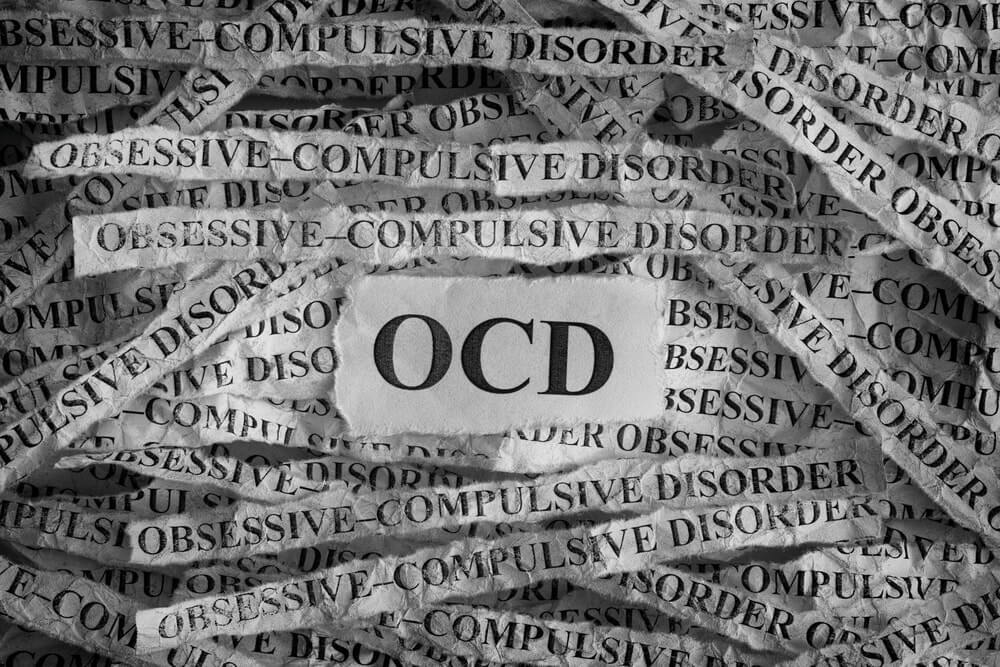
Obsessive Compulsive Disorder (OCD) is a common and chronic mental health condition. Individuals suffering from Obsessive Compulsive Disorder symptoms experience recurring and intrusive thoughts, or obsessions, along with behaviors (compulsions) that they feel they must complete repeatedly.
Not to be confused with Obsessive Compulsive Personality Disorder (OCPD), OCD is a long-lasting anxiety disorder, not a personality disorder. People suffering from OCD have extreme, debilitating anxiety and fear related to the illness, whereas individuals with OCPD do not. Also, OCD sufferers tend to realize they have a problem, but people with personality disorders do not. Their compulsions and behaviors are far more entrenched and last a lifetime.
The lifetime prevalence of OCD in the United States is 2.3% amongst adults. More women than men suffer from OCD. The doubts and fears that accompany the illness can be very distressing for the sufferer, and if not diagnosed and properly treated by a medical professional, some OCD sufferers will attempt to self-medicate with drugs and/or alcohol.
Fortunately, OCD is a highly treatable condition. With the right therapy and medication, people with OCD can tame the illness and go on to lead normal, productive, and happy lives. The following article will explore the symptoms of OCD, the effects of self-medication, and how co-occurring disorders are treated.
What is Obsessive Compulsive Disorder?
Obsessive Compulsive Disorder occurs when an individual gets caught up in a never-ending cycle of intrusive thoughts accompanied by repeated behaviors, or compulsions. The individual creates and participates in the compulsions to keep the intrusive thoughts at bay. Intrusive thoughts are usually unpleasant, horrifying, or taboo, and can cause the person to suffer from intense anxiety, fear, and doubt.
Common OCD obsessions with concurrent compulsions
- Excessive fear of bacteria or contamination
- Unwanted, forbidden thoughts about taboo topics, like sex and religion
- Thoughts of harming the self or others (not related to depression)
- Fear of some terrible, unknown disaster occurring
Common Behaviors
- Obsessive, frequent hand washing and bathing or cleaning
- Rearranging or reordering things in a precise way
- Compulsive counting or touching of objects in a pattern to stave off an unknown disaster
- Constantly checking doors to make sure they are locked
Untreated, the results of obsessive compulsive disorder symptoms can cause major disruptions in a person’s life. Obsessions, when not indulged with compulsions, give the sufferer intense bouts of anxiety and fear. The sufferer can spend a lot of valuable time attempting to ameliorate these unpleasant feelings and thoughts with a compulsion.
Sufferers may also avoid certain areas or activities that give them obsessive thoughts, negatively affecting their quality of life. Sometimes, people suffering from untreated OCD will self-medicate.
Do Obsessive Compulsive Disorder Symptoms Lead To Self-Medicating?
OCD sufferers take, on average, seventeen years to receive the right treatment. While treatment can radically reduce the symptoms and side effects of the disorder, only 10% of those who seek treatment can completely eradicate the disease.
While the disorder tends to flare up and subside based on outside life stressors, the symptoms can be consuming and debilitating. OCD sufferers understand they have a problem, but the anxiety and societal stigma surrounding mental health conditions can keep them from reaching out for professional help. Feelings of inadequate support or fearing a lack of medical resources can lead sufferers to despair.
Unfortunately, some may self-medicate with drugs and alcohol. Self-medication is the act of using alcohol or illegal drugs, or using legal drugs off-label, to ease the symptoms of mental health conditions.
Risks of Drug Abuse with Obsessive Compulsive Disorder Symptoms
Self-medicating OCD with drugs and alcohol prevents the OCD sufferer from getting the right diagnosis and proper treatment. Drug and alcohol abuse only masks the root problem, papering over it with substances that bring about their own set of unique challenges and risks to the sufferer.
Drug and alcohol abuse can cause adverse legal, relationship, career, and health consequences. Drugs and alcohol lead to severe impairment, increasing the risks of accidents and death. On average, nearly one-third of fatal vehicular accidents in the United States are caused by drunk driving.
In addition, the person can quickly form a dependency and addiction to drugs and alcohol. Now, they are suffering from a debilitating anxiety disorder and a drug or alcohol addiction.
Drug and alcohol addiction can cause horrible withdrawal symptoms, one of the many reasons why people have such a difficult time quitting. Certain drugs, like benzodiazepines, and alcohol can cause deadly withdrawal side effects.
How Co-Occurring Issues with OCD Are Treated?
First, the drug addiction must be addressed in a safe, clinical environment. In many cases, the addict doesn’t fully understand that they became addicted to drugs or alcohol because of OCD. Subsequently, medical staff cannot address the underlying issues until they can fully examine the person once they are sober.
Since alcohol and drug withdrawals can, at best, be unpleasant and painful and at worst, deadly, it is best for the addict to undergo a supervised medical detox. Here, the person can be given legally prescribed medication to lessen the effects of withdrawals.
Also, under the supervision of trained medical staff and supportive therapists, the person can be monitored for any deadly withdrawal symptoms, like seizures and hallucinations.
Appropriate Treatment Environments
Depression and self-harm are common long-term withdrawal symptoms, and in a medical rehabilitation center, recovering addicts can be effectively monitored and treated for depression and kept from harming themselves.
In a rehabilitation center, trained therapists and counselors are available 24/7 to help those in recovery work through the problems and issues that led to their addiction.
It is in this type of professional setting that the person in recovery can finally talk about and explore the symptoms of OCD that they were trying to mask. By uncovering the underlying mental health condition, it can be addressed with an individualized therapeutic and pharmacological approach.
Once the drug or alcohol addiction is addressed, and the OCD uncovered and treated, a person can make a life-long recovery from addiction and the unpleasant thoughts and compulsions of OCD.
Identifying and Treating Obsessive-Compulsive Disorder
OCD, or Obsessive Compulsive Disorder, is a disruptive mental illness that falls within the top 20 reasons for illness-related disabilities throughout the world. Left untreated, OCD often leads to depression, severe anxiety, and physical condition. It impacts people across all demographics and ages, from teens to older adults. OCD rituals may take up substantial amounts of time as well as physical and mental energy. Southern California Mental Health treatment can help diagnose and treat these rituals and symptoms.
Symptoms of OCD
A typical case of OCD includes both compulsions and obsessions, but it is possible to be diagnosed with the disorder while displaying only symptoms of either mania or compulsion. You may not even realize that your compulsions and obsessions are unreasonable or excessive. However, they occupy a significant amount of time, interfering with daily routines and functioning in social elements, work, or school.
Obsessions are persistent and recurrent impulses, thoughts, or images. They cause distressing emotions, including disgust and anxiety. Further symptoms of OCD obsessions include:
Compulsions are actions, either mental acts or physical behaviors, that you feel driven to perform. This drive is due to the response to obsessions. Other compulsions include:

Behaviors to Treat OCD
Expect the unexpected. An obsessive thought may occur at any place or any time. Do not let it shock you from stability when old or new ideas appear out of nowhere. Be prepared to utilize therapy tools whenever necessary. Be ready to accept risk. This way of thinking is an integral element of life. Remember that the most significant threat is not recovering. Do not seek reassurance, either from others or yourself. Seeking relief is a compulsion, regardless of your justification for it.
Please do not waste your time with attempts to prevent your thoughts from happening. This way of thinking is like telling someone not to think about an elephant. Their immediate thought will be of an elephant. Studies have found that it is impossible to push down or halt specific ideas effectively.
Obsessions and compulsions can occupy many hours of your day, interfering with social and familial relationships. As the disorder increases in severity, avoidance can grow to become more problematic. Overall, be sure to take care of yourself. Whether you suffer from teen OCD or older adult symptoms, Southern California mental health treatment at Mission Harbor Behavioral Health can help you control your symptoms and live a regular life. Contact us for help.
Get Help Now
If you or a loved one are struggling with OCD, or a co-occurring substance abuse issue, please contact our admissions team today for a free and confidential assessment.

